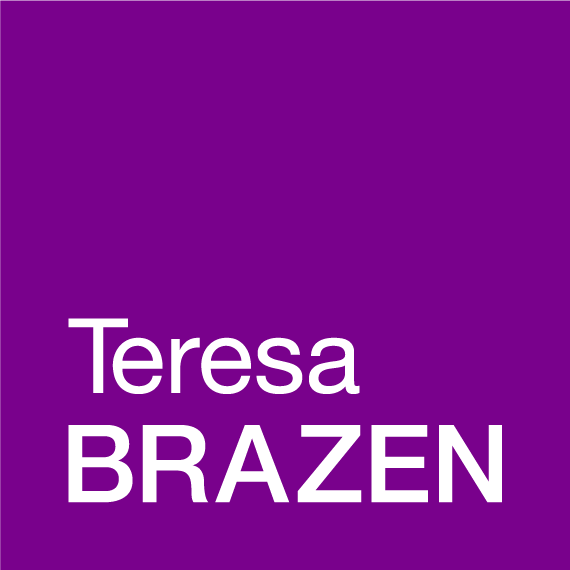This is a painting I created back in 2010. I made large-scale, abstract work like this with no agenda, vision, or plan. I’d put random marks all over the canvas…and then step back to see what was there. Maybe I’d see a figure, a pattern, or a tree (like I did in this case). I’d go with that image, add paint to draw it out, step back, find something else, step in to add more paint, step back to see what else I could find…and so on. What emerged was always a surprise, and I found the process soothing, meditative, and fun. I didn’t know then that I was also strengthening my brain’s ability to generate insights and solve problems.
In neuroscience, we see from brain images, measuring brain waves, and studies that an open, exploratory state of mind leads us to more accurate solutions to problems and a higher volume of solutions. Analytical problem-solving, which is more focused and procedural, is prone to more errors and produces less diverse and original solutions. And so, my painting practice was also a brain practice.
What does this have to do with you? If your company, like most, wants you and your team to generate more innovative ideas, consider how you might encourage this open, exploratory state of mind in yourself and those you collaborate with. It may feel at odds with other business pressures like efficiency and productivity, but it’s critical if you want to foster creativity.
Tactically, this means rather than maximize every second of your day, allow yourself time blocks to daydream, stop to do a puzzle, take a short walk, etc. Encourage this within your team, too (a.k.a. make it safe/acceptable to do it openly!). Because when your mind is busy and occupied, you are less creative. In contrast, when the mind is not focused on anything in particular, you are more likely to arrive at sudden insights…the brain often solves problems in these seemingly unproductive times.
This is an especially useful practice just after you and your team have explored and researched a problem. If you then stop and shift your focus to something else entirely, ideally something that fosters a more open and exploratory mindset, you increase your odds of insight. This is also why you have ah-has in the shower and in your dreams.
I hope this is useful to those of you who want to cultivate creativity in yourselves and your teams. To innovate, let your mind wander.

